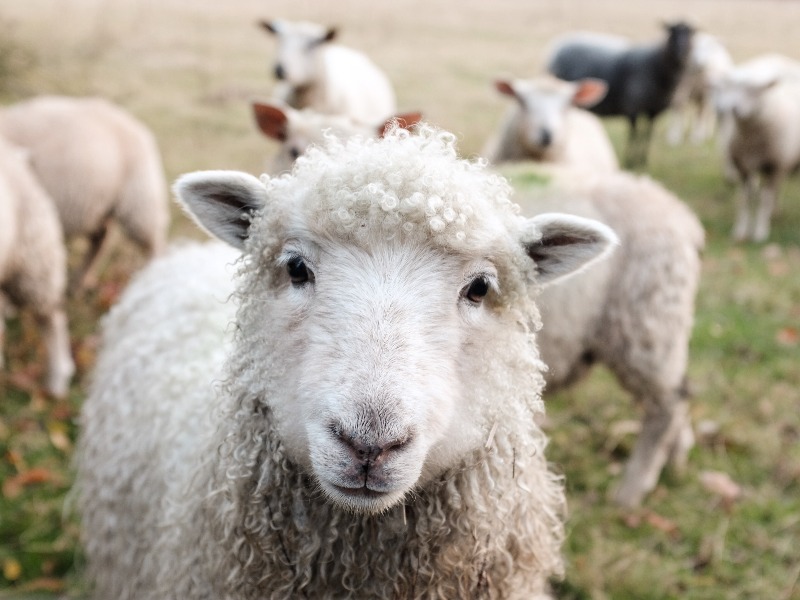Sheep and Shepherd
 There’s something about a walk through the Sussex countryside, particularly when the sun is shining, the views are stunning and there’s the promise of a pub lunch! My most recent wander took me past a number of sheep and lambs in a field, with one having its feet tended to by the farmer. I’m not sure what he was doing, but it prompted me to think how rarely we see a shepherd with sheep in this country. How does this change our response to the frequent and familiar Biblical references to these creatures?
There’s something about a walk through the Sussex countryside, particularly when the sun is shining, the views are stunning and there’s the promise of a pub lunch! My most recent wander took me past a number of sheep and lambs in a field, with one having its feet tended to by the farmer. I’m not sure what he was doing, but it prompted me to think how rarely we see a shepherd with sheep in this country. How does this change our response to the frequent and familiar Biblical references to these creatures?
Back in Bible times, the shepherd’s lot was not an easy one - an early start, leading the sheep to the pasture for the day, then watching them to make sure none strayed (and rescuing them if they did), guiding the flock to a stream for water and then bringing them back to the fold for the night, which the shepherd spent guarding them. He’d be exposed to extremes of the heat and the cold, vulnerable to attacks from wild animals and be at risk from robbers. Not to mention having to rely on nature for food. It was the lowliest of jobs, often given to the youngest member of the family, yet required skills of great courage and tenderness.
And so I find it especially interesting that in ancient Israel, the shepherd is also used as a metaphor for a king. And knowing that helps make sense of the opening line of arguably the most famous Psalm in the Bible: “The Lord is my shepherd…” - David, the shepherd boy turned King, acknowledges God as ruler of his life and recognises God’s interest in him as an individual.
He speaks with certainty: “I shall not want…”. David recognises that all his needs are provided for, but also makes a decisive declaration - he decides not to desire more. He doesn’t need to when he knows he has God’s protection and abundant provision.
“He makes me lie down in green pastures…” - a scene of lush abundance is chosen for rest and for nourishment, an oasis in a dry and dusty land. There’s a sense of being unhurried, of having time to recharge.
“He leads me by the still waters…” - neither a fierce torrent nor a stagnant pool - more of a gently babbling brook, a place of calm and well-being, where God is in control.
“He restores my soul…” - he is refreshed and renewed.
And this acknowledgement of God as shepherd suggests a recognition from David as himself as a sheep. Sheep are by nature dependent, apt to wander (and don’t have the instinct to find their way home again), unable to save themselves when they get into trouble (they can’t even right themselves if they end up on their backs). But they are also comfortable in the presence of their shepherd because they feel safe. The rest of Psalm 23 offers further comfort and assurance - the shepherd continues to lead and guide and equip.
So, however you are feeling this week, the Lord is your shepherd. Know that you need nothing else. Allow yourself to rest and feed in the pastures of his presence so that He can restore your soul, refreshing you for whatever lies in store in the days ahead.
Deborah Packham